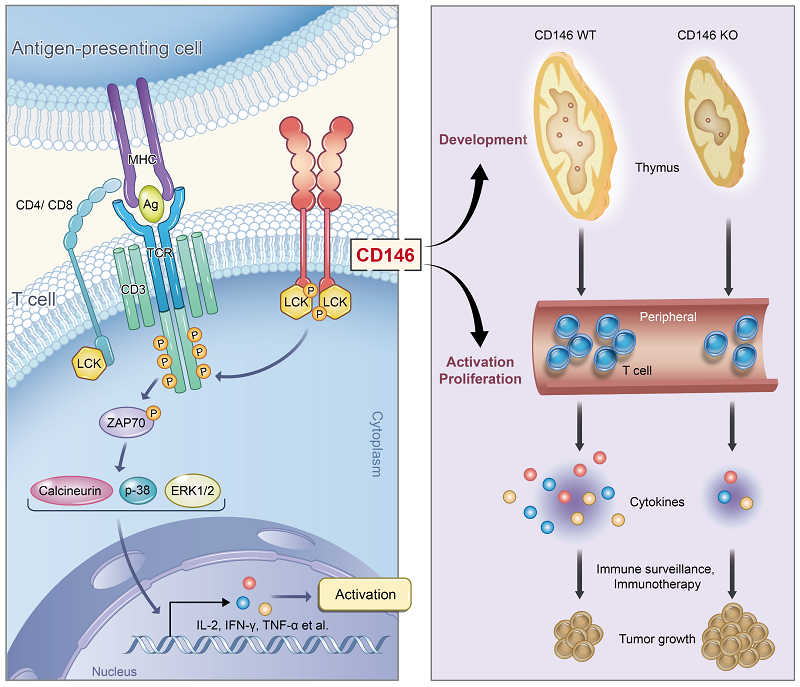CD146 bound to LCK promotes TCR signaling and anti-tumor immune response in mice
As an important component of the immune system, T lymphocytes play an indispensable role in fighting bacteria or viruses as well as killing tumor cells. T cell activation undergoes an orderly and complex process that critically relies on T cell antigen receptor (TCR) signaling, which requires an orchestrated interplay of receptors, receptor-associated factors, kinases, and transcription factors, together termed TCR signalosome. Although the intracellular signaling cascade has been extensively studied, exactly how membrane TCR activation leads to intracellular signaling has remained elusive.
Initiation of T cell receptor (TCR) signaling involves the activation of the tyrosine kinase LCK; however, it is currently unclear how LCK is recruited and activated.
Recently, Professor YAN Xiyun's group, in a collaboration with Prof. ZHU Mingzhao's group at the Institute of Biophysics, Chinese Academy of Sciences, reported that the membrane protein CD146 as an essential member of the TCR network for LCK activation. CD146 deficiency in T cells substantially impaired thymocyte development and peripheral activation, both of which depend on TCR signaling. CD146 was found to directly interact with the SH3 domain of coreceptor-free LCK via its cytoplasmic domain. Interestingly, CD146 was found to be present in both monomeric and dimeric forms in T cells, with the dimerized form increasing after TCR ligation. Increased dimerized CD146 recruited LCK and promoted LCK autophosphorylation. In tumor models, CD146 deficiency dramatically impaired the anti-tumor response of T cells. Thus, this study suggest an important mechanism of dimeric CD146-mediated LCK activation for TCR initiation, which may have potential as an application in tumor immunotherapy.

Proposed model for the role of CD146 in TCR signaling. Upon TCR engagement, CD146 is recruited as a membrane component of TCR complex and dimerized. Dimerized CD146 promotes LCK activation, thus exerting a positive regulation on T cell activation.
Article link: https://www.jci.org/articles/view/148568
Contact: DUAN Hongxia
Institute of Biophysics, Chinese Academy of Sciences
Beijing 100101, China
Email: cherryshoen@ibp.ac.cn
(Reported by Dr. YAN Xiyun's group)

